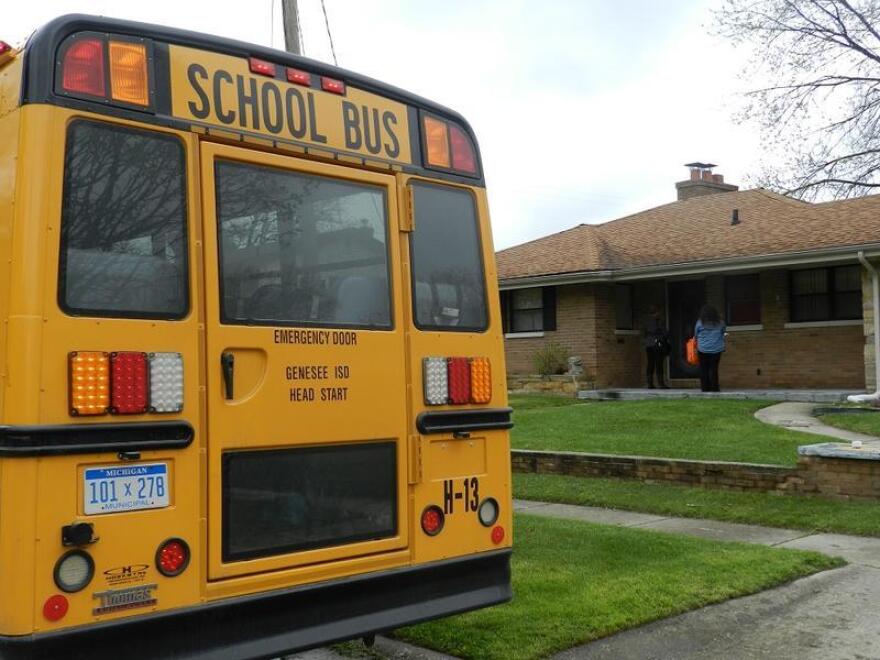A statewide shortage of school bus drivers is pushing school districts to attract talent in whatever way they can. For some districts, that's coming in the form of substantial hiring bonuses.
Mona Shores Public Schools in Muskegon County is one such school. The district is offering a $2,500 signing bonus upon completion of 90 days. It's also offering a $500 finder's fee for any Mona Shores district employee who recommends a bus driver.
Ann Arbor Public Schools is also offering signing bonuses to bus drivers: $1,000 for fully credentialed bus drivers, $750 to drivers with a CDL, and $500 for non-credentialed drivers. Ann Arbor is also offering more than $22 an hour—up from $20 in 2016.
Dave Meeuwsen is the executive director of the Michigan Association of Pupil Transport. He retired from driving last year. He said the COVID-19 pandemic only worsened the shortage of bus drivers, which had been a problem for a couple of years.
"It hadn't reached a breaking point until COVID, but it's been out there for a while," he said. "When COVID came along, some drivers who have been around a long time and might be a little older thought 'hey, I could be susceptible to this;' they retired and maybe did not come back as a retired sub like a lot of people do for a little while after they retire. So that's compounded it."
It's not as easy as just signing up and getting the job, Meeuwsen said. Drivers have to undergo a significant amount of training, and also have to pass drug tests and what Meeuwsen describes as "a pretty stringent physical."
The bonuses are something we're going to see a lot of in the short term, he said, because districts are scratching their heads, trying to figure out what works.
"If you think... there's 185 days of school, you work maybe two and a half hours in the morning and two and a half hours in the afternoon, so 25 hours a week times 36 weeks? Then you can add your additional field trips and sports trips and things like that. So $2,000 equates to a couple dollars per hour, but I think districts are going to have to pay more per hour in the long run to make it all come together, plus offer some fringe benefits," Meeuwsen said. "It's a tough labor market."
Meeuwsen described driving a school bus as an incredibly fulfilling and rewarding career. He said it's a privilege to be the first district employee to see the kids in the morning, and oftentimes the last one to see them at the end of the school day. He also pointed out that kids are safer riding the bus than they are driving, citing a U.S. Department of Transportation figure that students are 70 times more likely to get to school safely on a bus than they are by car.
That's a big responsibility for a school bus driver to take on, and Meeuwsen said districts should expect to pay those drivers accordingly.
"When you have anywhere from 70 to 90 children behind you, and you’re making sure you’re they’re safe and you’re driving safe, I just think there’s a little more responsibility there. So I think districts are going to have to start their folks who get hired in at a lot higher rate, and raise wages," he said.
Meeuwsen also wants to remind drivers to be safe and follow the law when it comes to stopped school buses: "Red lights flashing, no passing!"

